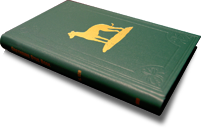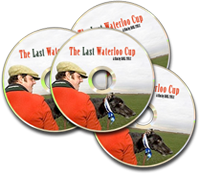Roger Helmer MEP on Hunting and Coursing
Hunting and Coursing: Taking on the antis
On Dec 27th I attended the “Boxing Day” meet of the Fernie hunt (delayed because the 26th was a Sunday), and I wrote about it on my blog, partly as a celebration of a great English tradition, partly as a reminder to the Party that we are still awaiting the repeal of the hated Hunting Act.
I suppose I should have expected the angry emanations of the antis, and had I done so, I should not have been disappointed. The comment section was soon piling up with assorted bleeding-hearts and bunny-huggers. One, in particular, a Mr Woollard, asked whether I also favoured the return of hare coursing. I have the sense that he put this question expecting me to be gravely embarrassed, forced either to dissemble, or to admit to evil thoughts lurking in the Heart of Darkness.
But of course it caused me not a moment’s qualm. In the good old days before the Hunting Act, I was a regular at the Waterloo Cup, the world’s greatest coursing meeting (where I frequently met my good friend Nigel Farage MEP, also an enthusiast). I have the lapel badges to prove it, and I look forward with happy anticipation to going to Altcar again when the Act is repealed. And I insist that repeal of the Hunting Act means repeal, not some selective reinstatement of fox-hunting alone, on some restricted and regulated basis.
The tragedy of the antis is that they are seeking to deny not only the fundamental nature of man, as a hunter-gatherer – a calling we pursued for perhaps a hundred times longer than we have been “civilised” agriculturalists – but also to deny the very nature of biology itself, where virtually every animal and insect is either predator or prey, and sometimes both. Even man himself, arguably the greatest predator of all, may occasionally fall foul of crocodile or lion or shark.
The greyhound exists to hunt (and I own one, even if she mostly hunts old shoes and soft toys). It is amazingly fast over short distances, and wonderfully agile, and is perhaps the most highly-evolved sight-hound, up there with the Saluki and the Borzoi, and perhaps the deerhound on a good day. Admittedly much of its hunting skills are thanks to human breeding over thousands of years. The earliest text on hare coursing dates from AD 180, and contains the familiar and wonderful quote: “True huntsmen do not take out their hounds to catch the creature, but for a trial of speed and a race, and they are satisfied if the hare manages to escape”. But nonetheless the greyhound, like all hounds, descends from something very like a wolf, which has survived by hunting for millions of years. That is the nature of dogs, and especially of hounds.
Agile the greyhound may be, but its agility (though not its speed) is greatly exceeded by that of the hare, which has been honed by evolution to survive predation by flight and evasion, and is remarkably good at it. I have seen a hare, with two hounds snapping at its backside, leap vertically into the air while the hounds ran underneath it, turn around in the air and hit the ground running, and go haring off (literally) in another direction before the greyhounds had worked out what happened.
It is not surprising, therefore, that in 80 to 90% of (formerly legal) hare courses, the hare gets clean away, because pace Mr Woollard, the objective of coursing is not to delight in the suffering or death of the hare, and still less to provide for the pot (there are cheaper and easier ways of taking hares for the kitchen), but as my AD 180 quote illustrates, to test two greyhounds in competition with each other. And just as real foxhunting requires a live quarry, because no drag trail can substitute for the cunning and skill and unpredictability of a real fox, so no substitute for hare coursing can test the hounds as a real live hare can.
I suspect that a similarly high proportion of hares escape from pursuit by foxes. Because the fox is only running for his supper, but the hare is running for his life.
If greyhounds are evolved and bred to hunt, so the hare is evolved for flight. The hedgehog has one simple but effective anti-predation strategy: it rolls up into a spiny ball. So also the hare has one simple but effective strategy: it flees, relying on speed, agility and (usually) an intimate knowledge of its terrain.
I sometimes wonder what sort of world the antis want. Do they simply want to deny country people the right to follow an age-old tradition? Do they believe that this would improve us morally? Or do they believe that banning coursing will significantly improve the lot of the hare? (In reality, of course, it is likely to hasten the extinction of hares, since landowners would no longer have an incentive to protect them). If the latter, has it not occurred to the antis that foxes and other predators will continue to take hares? Or do they dream of a world with no predation at all, where the lion and the lamb lie down together, and the fox and the hare share a bowl of muesli for breakfast?
Imagine this strange world with no predation. You need to bear in mind that expensive evolutionary adaptations like flight (whether the flight of the hare from predators, or the flight of birds) impose a huge opportunity cost on a creature. If the hare did not develop such speed and massive hind leg muscles, it would have more resource for (for example) raising leverets. But these expensive adaptations require strong adaptive pressure not only to evolve in the first place, but also to maintain them. The obvious illustration is the widespread occurrence of flightless birds, clearly descended from flying ancestors, in island locations where there are no major predators. In the absence of adaptive pressure, you get regressive evolution and the loss of highly-evolved features.
So what would happen to the hare, over many generations, if we could stop predation entirely? It would cease to be a hare. It would evolve into something like a large gerbil. That would be a worthy achievement for the likes of Mr Woollard. If he succeeded in stopping the predation of hares, he would sound the death-knell for the hare as we know it. Well done, Sir!

